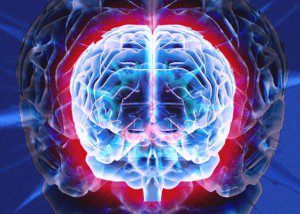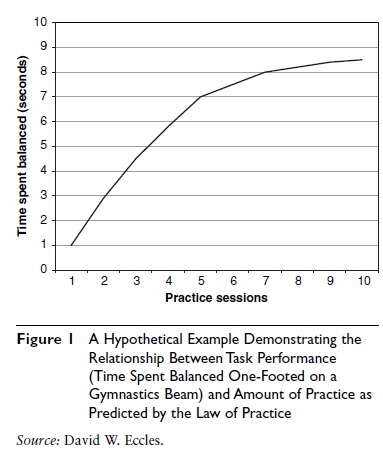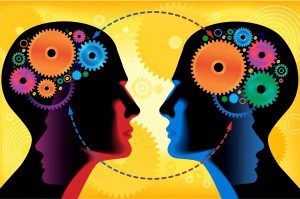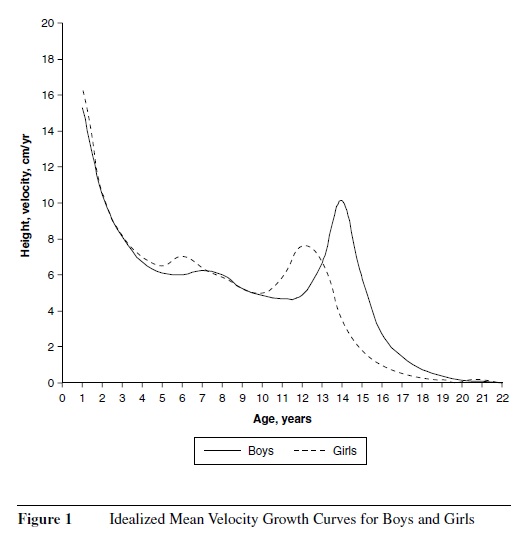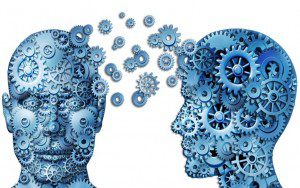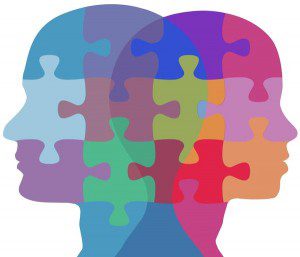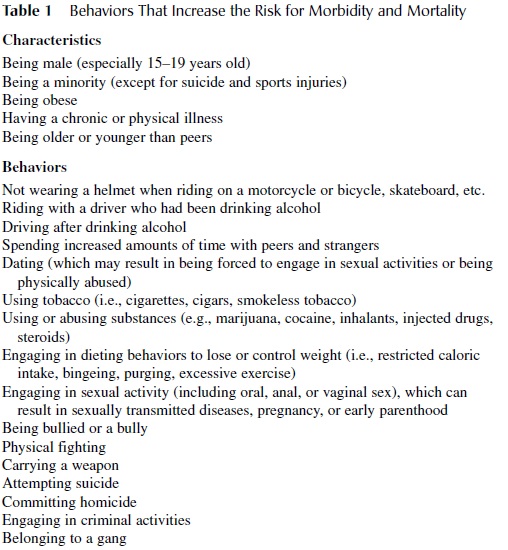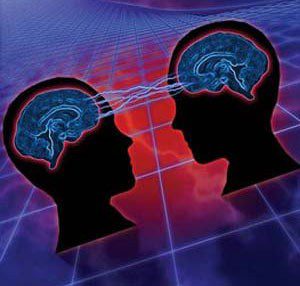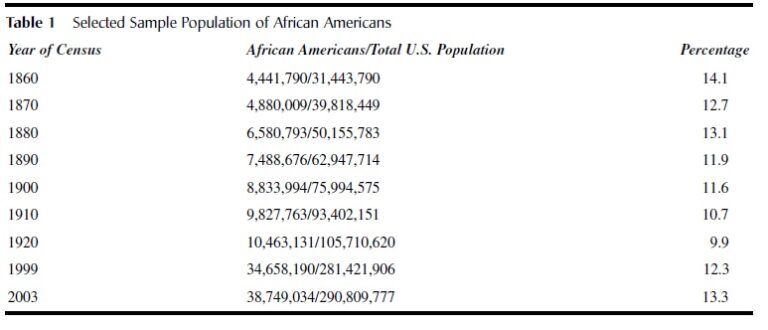Equity Theory
Equity Theory Definition Equity theory posits that when it comes to relationships, two concerns stand out: (1) How rewarding are...
Read More
Occupational Stress
Occupational stress is a broad concept that has been defined in a variety of ways in the popular and professional...
Read More
Underrecovery Syndrome
In sports, optimal performance is only achievable if athletes recover after competition. Recovery and intense exercise must also be balanced...
Read More
Error Management Theory
Error Management Theory Definition One of the great challenges for humans is figuring out what is going on in other...
Read More
Rehabilitation Counseling
Rehabilitation counseling is a process that is designed to assist people with disabilities in accomplishing their goals and in achieving...
Read More
Verbal Protocols
A verbal protocol or verbal report is a cognitive task analysis (CTA) technique designed to elicit a verbalizable report of...
Read More
Escape Theory
Escape Theory Definition Escape theory refers to the tendency for people to engage in behaviors to avoid an unpleasant psychological...
Read More
Relationships with Clients
The therapeutic relationship is central to counselors’ work with clients. The therapeutic relationship is the association, rapport, and connection between...
Read More
Vision in Sports
Vision is the process of seeing and perceiving the surrounding environment by using information contained in light. Appropriate visual information is ...
Read More
Excitation-Transfer Theory
Ever heard of overreacting? Such as when lovers, after yelling their heads off arguing, make up and experience unusually strong...
Read More
School Counseling
In addition to their typical developmental issues, children and adolescents currently face many challenges to their healthy growth and development....
Read More
Implicit Personality Theory
Implicit Personality Theory Definition An implicit personality theory refers to a person’s notions about which personality characteristics tend to co-occur...
Read More
Self-Disclosure
Self-disclosure refers to the verbal disclosure of personally sensitive information by client or counselor, and may involve disclosure about actions,...
Read More
Inoculation Theory
Inoculation Theory Definition Inoculation theory was devised by William McGuire in the early 1960s as a strategy to protect attitudes...
Read More
Sexual Violence
The Centers for Disease Control and Prevention (CDC) have developed uniform, nonlegal definitions for sexual violence and related terms in...
Read More
What is Coordination?
Coordination is something we all take for granted— at least until it breaks down under extreme stress (as it does...
Read More
Interdependence Theory
Interdependence Theory Definition Interdependence theory describes the structural properties that characterize interactions and the implications of such structure for human...
Read More
Social Support
Social support has been one of the most widely examined constructs in social science research since the 1970s, although the...
Read More
Laws Of Movement Learning And Control
Various laws of movement learning and control have been proposed on the basis of research. In this entry, the focus...
Read More
Learning Theory
Learning Theory Definition The meaning of this term seems simple: Learning theory is the theory about how learning is achieved....
Read More
Sport Psychology and Counseling
The impact of exercise and sport on our society is pervasive. They are relevant topics for study both because of...
Read More
Abecedarian Research Project
The Abecedarian Research Project was an intensive research program designed to study the effect of high-quality educational child care on...
Read More
Logical Positivism
Logical Positivism Definition Logical positivism, also called logical empiricism, was an early 20th-century philosophical movement that held that a statement...
Read More
Narcissistic Reactance Theory
Narcissistic Reactance Theory Definition The narcissistic reactance theory of sexual coercion and rape explains how the personality of rapists intersects...
Read More
Abstract Reasoning
Humans must rely on intrinsic cognitive functions for logical conclusions in a variety of situations. Abstract reasoning is a cognitive...
Read More
Objectification Theory
Objectification Theory Definition Objectification theory is a framework for understanding the experience of being female in a culture that sexually...
Read More
Accommodation
According to Piaget’s theory of cognitive development, children’s thinking occurs as they begin to adapt to their environment in increasingly...
Read More
Opponent Process Theory
Opponent Process Theory Definition Richard L. Solomon’s opponent process theory of emotions—also commonly referred to as the opponent process theory...
Read More
Acquired Immune Deficiency Syndrome (AIDS)
Acquired immune deficiency syndrome (AIDS) is an advanced stage of infection with the human immunodeficiency virus (HIV). AIDS was first...
Read More
Optimal Distinctiveness Theory
“Everyone needs to belong.” “Everyone needs to be unique.” That both of these statements are true is the basis for...
Read More
Activities Of Daily Living (ADLs)
An individual’s ability to live independently is often determined by that person’s capacity for self-care and ability to engage in...
Read More
Prospect Theory
Prospect Theory Definition Prospect theory is a psychological account that describes how people make decisions under conditions of uncertainty. These...
Read More
Activity Theory
Human actions are the fundamental phenomena that all theories of knowing, learning, and development aspire to explain. However, most theories...
Read More
Realistic Group Conflict Theory
Between the borders of Pakistan and India lies a fertile valley known as Kashmir. Since 1947, India and Pakistan have...
Read More
Acupuncture
Acupuncture is the medical practice of inserting needles into specific acupoints for the purpose of treating disease. Acupuncture is part...
Read More
Reasoned Action Theory
Reasoned Action Theory Definition The theory of reasoned action (TRA) is a model for predicting people’s behavior, which states that...
Read More
Adaptation in Cognitive Development
Adaptation takes place simultaneously, and in many ways, it is a complementary process to organization. Like organization, adaptation is a...
Read More
Reductionism
Reductionism Definition Reductionism means that complex principles can be reduced to simpler or more fundamental principles. Social psychologists often oppose...
Read More
Alfred Adler
Alfred Adler was a physician and psychologist who created the Individual Psychology movement. Adler wrote 19 books and many articles...
Read More
Regulatory Focus Theory
For centuries, the hedonic principle that people approach pleasure and avoid pain has been the dominant motivational principle for many...
Read More
Adolescence
Adolescence is the transitional period of growth, development, and maturation that begins at the end of childhood (about 10 years...
Read More
Relational Models Theory
Relational Models Theory Definition The relational models theory describes the four fundamental forms of social relationships: communal sharing, authority ranking,...
Read More
Role Theory
“All the world’s a stage, and all the men and women merely players”: With these lines from As You Like...
Read More
Advance Directives
Advance directive is the general term used to describe statements given in advance of incapacitating illness regarding how individuals want...
Read More
Scapegoat Theory
Scapegoat Theory Definition Scapegoat theory refers to the tendency to blame someone else for one’s own problems, a process that...
Read More
African Americans and Human Diversity
Historically, African Americans have been studied and explained as compared with the values and characteristics of Europeans. The term African...
Read More





